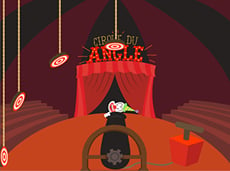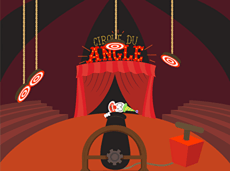Subtopics:
Educational 4th Grade Measuring Angles Games
About Educational 4th Grade Measuring Angles Games
On Education.com, educational 4th grade measuring angles games provide students with interactive lessons to understand and identify different angles such as acute, right, and obtuse. These digital and printable activities include hands-on games, worksheets, and engaging assessments designed to reinforce angle measurement skills. Using tools like protractors and virtual exercises, students develop a strong foundation in geometry essential for math learning and problem-solving. These resources make learning about angles both fun and effective for fourth-grade learners.
Students can practice measuring and classifying angles through a variety of formats, including digital game platforms like Math Playground’s Alien Angles, where they can apply angle measurement in interactive challenges. Printable resources from sites like Teachers Pay Teachers offer games such as 'Protractor War' and 'I Have, Who Has,' which combine hands-on practice with strategic competition. By incorporating visual aids, timers, and scoring elements, these activities enhance engagement while reinforcing had-on measurement concepts. Educators and parents have access to structured materials that support guided practice and independent learning.
Using these angle measuring games on Education.com enables teachers and parents to easily access comprehensive lesson materials that align with common core standards. The hands-on approach encourages collaborative learning while fostering critical thinking and fine motor skills. These resources save planning and instruction time, allowing focus on student understanding and mastery. Whether in the classroom or at home, students gain confidence in geometry while enjoying games that reinforce measurement skills and enhance mathematical reasoning.
Students can practice measuring and classifying angles through a variety of formats, including digital game platforms like Math Playground’s Alien Angles, where they can apply angle measurement in interactive challenges. Printable resources from sites like Teachers Pay Teachers offer games such as 'Protractor War' and 'I Have, Who Has,' which combine hands-on practice with strategic competition. By incorporating visual aids, timers, and scoring elements, these activities enhance engagement while reinforcing had-on measurement concepts. Educators and parents have access to structured materials that support guided practice and independent learning.
Using these angle measuring games on Education.com enables teachers and parents to easily access comprehensive lesson materials that align with common core standards. The hands-on approach encourages collaborative learning while fostering critical thinking and fine motor skills. These resources save planning and instruction time, allowing focus on student understanding and mastery. Whether in the classroom or at home, students gain confidence in geometry while enjoying games that reinforce measurement skills and enhance mathematical reasoning.



